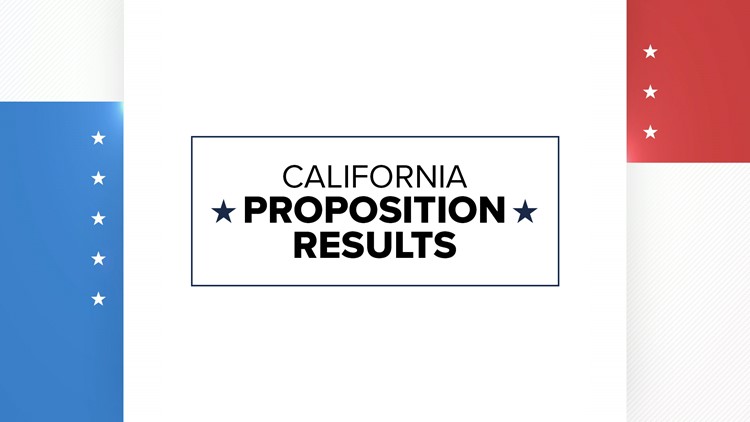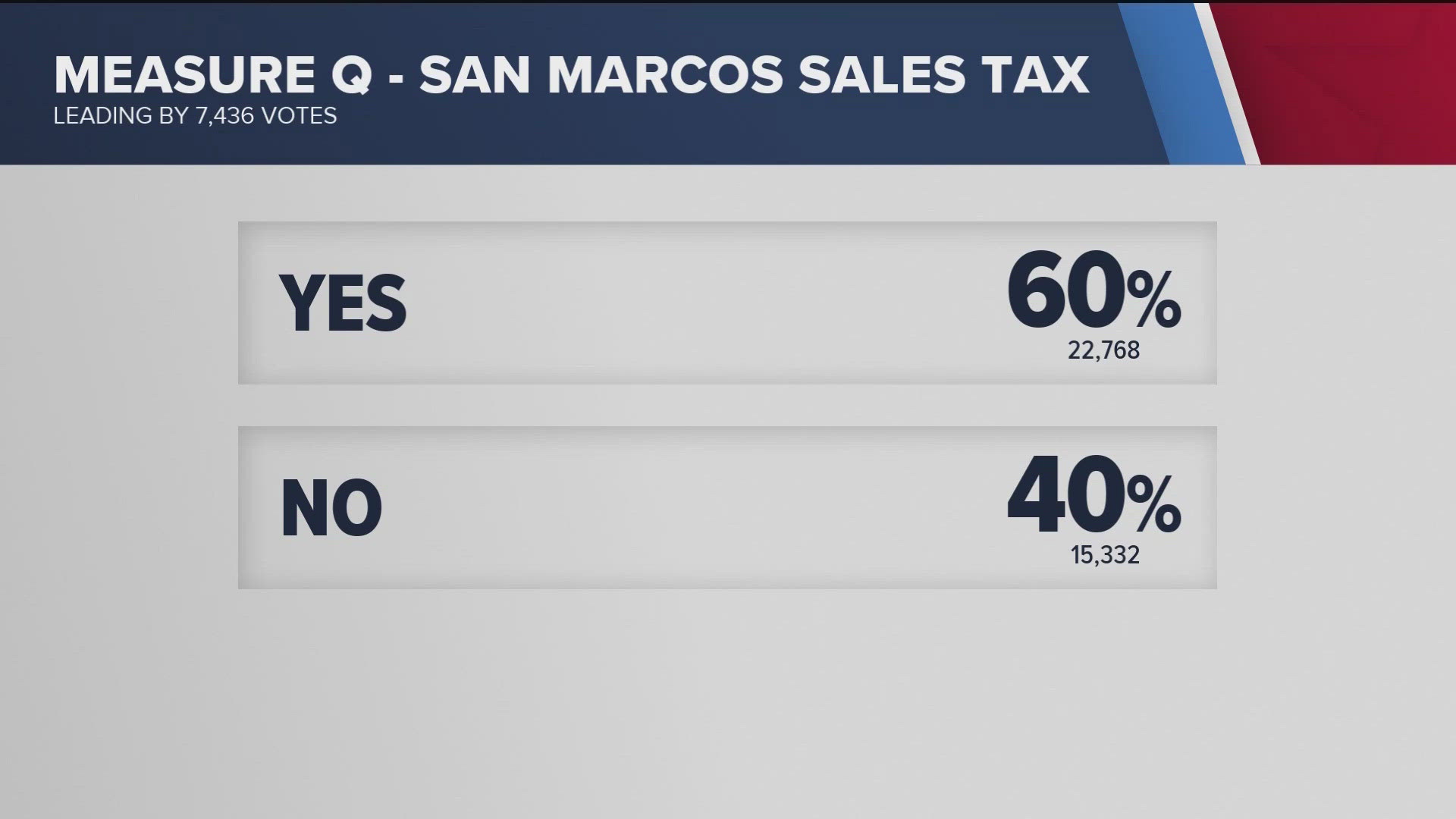CALIFORNIA, USA — California voters had a lot to consider in the November election. A dozen propositions were on the ballot in 2020 covering a range of topics from voting rights to rent control to tax rules.
Here is a rundown of each of the props and the election results for each.
California Proposition 14 gained enough support to pass and now approves $5.5 billion dollars for stem cell research and research facilities in the state. In 2004, California voters approved Proposition 71. It gave legal protection to stem cell research that was hoping to find new medical treatments or cures for everything from Parkinson’s to cancer. Proposition 71 also approved spending more than $3 billion to use for stem cell research and to build research facilities. Since 2004, most of the funding has been spent.
Proposition 15 was on the ballot in 2020 to amend the tax caps set by Proposition 13 back in 1978.
The voters chose to pass Proposition 13 back in 1978 to cap property taxes on properties at 1% of the sales price and the property taxes can only increase a maximum of 2% per year. That means that California property owners are paying property taxes based on the price that they originally paid for the property, typically much less than what it is actually valued at today. This is the same for both residential and commercial properties.
Proposition 15 was on the ballot now to amend what was done back in 1978 to eliminate the 2% increase cap, but only for business properties.
With over 56%, California voters have rejected an attempt to reinstate affirmative action programs in public hiring, contracting and college admissions, keeping a 1996 ban on the government granting preferential treatment based on race and gender.
Proposition 17, which nearly 60 percent of voters approved, will change the state Constitution to allow an estimated 50,000 felons on parole to vote.
Supporters said the parolees have paid their debt to society and should be able to shape the policies that affect their lives.
Proposition 18 was on the ballot to allow Californians to decide who has the right to vote. This proposition is about letting 17-year-olds vote and it is not as sweeping as it sounds.
Proposition 18 would have made a very specific change to the voting rights for 17-year-old citizens that only affects primary elections.
If it had passed, it would have allowed voting for 17-year-olds in a primary or special election as long as they will turn 18 years old by the proceeding general election.
RELATED: Why is the voting age 18?
A ballot measure which included a tax increase as well as a tax benefit narrowly passed in California.
With 51% of voters saying yes, the tax hike will be for people who inherit property from their family. The tax benefit is to help seniors, the disabled, and victims of wildfires and disasters.
California has upheld several criminal justice changes, endorsing recent efforts to ease mass incarceration by reducing penalties and allowing for earlier releases. They were also on pace to maintain the state's current cash bail system.
Voters defeated Proposition 20, rejecting supporters' pleas to address what they called the "unintended consequences" of two previously approved ballot measures.
Voters rejected a measure that would have let California cities expand rent control. Proposition 21 would have let cities limit rent hikes on properties that are more than 15 years old.
Uber, Lyft and other app-based ride-hailing and delivery services have prevailed in their expensive gamble to keep drivers classified as independent contractors.
Proposition 22 pitted the powerhouses of the so-called gig economy, including DoorDash, Postmates and Instacart, against labor unions. It's the most expensive California ballot measure ever — more than $225 million was spent, most by the gig companies.
With 58% of voters saying yes to Prop 22, the measure creates an exemption to a state law that would have made drivers eligible for benefits that come with being company employees.
California voters rejected a ballot measure to require a doctor or highly trained nurse at each of California's 600 dialysis clinics.
With more than 11 million votes tallied, Proposition 23 had just 36% of votes supporting the measure. It drew more than $110 million in spending.
Proposition 24 passed with 56% of the vote as of early Wednesday.
The measure would update a law approved two years ago that gave Californians the right to know what personal information companies collect about them online. Proposition 24 also would triple the fines for companies that violate kids’ privacy.
California is sticking with its traditional cash bail system, rejecting a nation-leading move to rely instead on risk assessments to decide which suspects should remain jailed awaiting trial.
With more than 11 million votes counted as of Wednesday, Proposition 25 had just 45% support.



